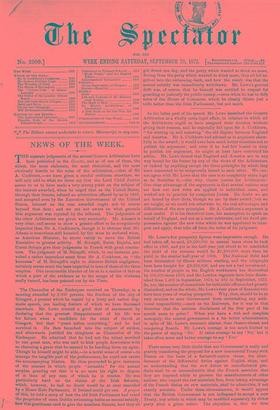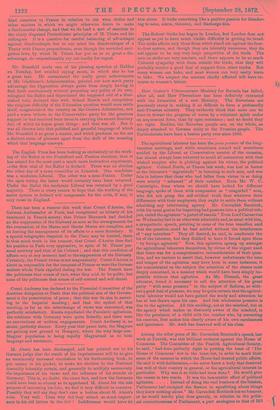There seems very little doubt that our Government is really
and gravely considering the proposal for a new commercial Treaty with France on the basis of a favoured-nation clause, the aban- donment of the differential duties against English ships, and an understanding that the new duties on manufactured pro- ducts shall be so inconsiderable that the French assertion that they are imposed solely to prevent the manufacturers of other nations, who import the raw materials free, from taking advantage of the French duties on raw materials, shall be admissible, if not exactly accurate. Under these circumstances, it would appear that the British Government is not indisposed to accept a new Treaty, any article in which may be modified separately by either party after a given notice. The objection is, that we thus
bind ourselves to France in relation to our wine duties and other matters in which we might otherwise desire to make a fundamental change, and that we do lend a sort of sanction to the thinly disguised Protectionist principles of M. There and his colleagues. It is a question for careful balancing of advantages against disadvantages, but to our mind the disadvantages of a Treaty with France preponderate, even though the wretched nevi-, gation laws, by which M. Thiers has put us at so great a dis- advantage, do unquestionably cry out loudly for repeal.



































